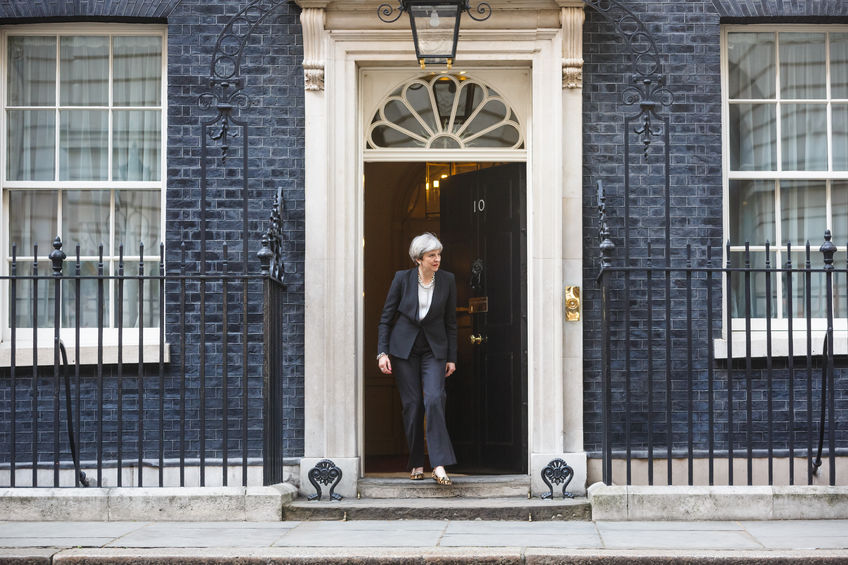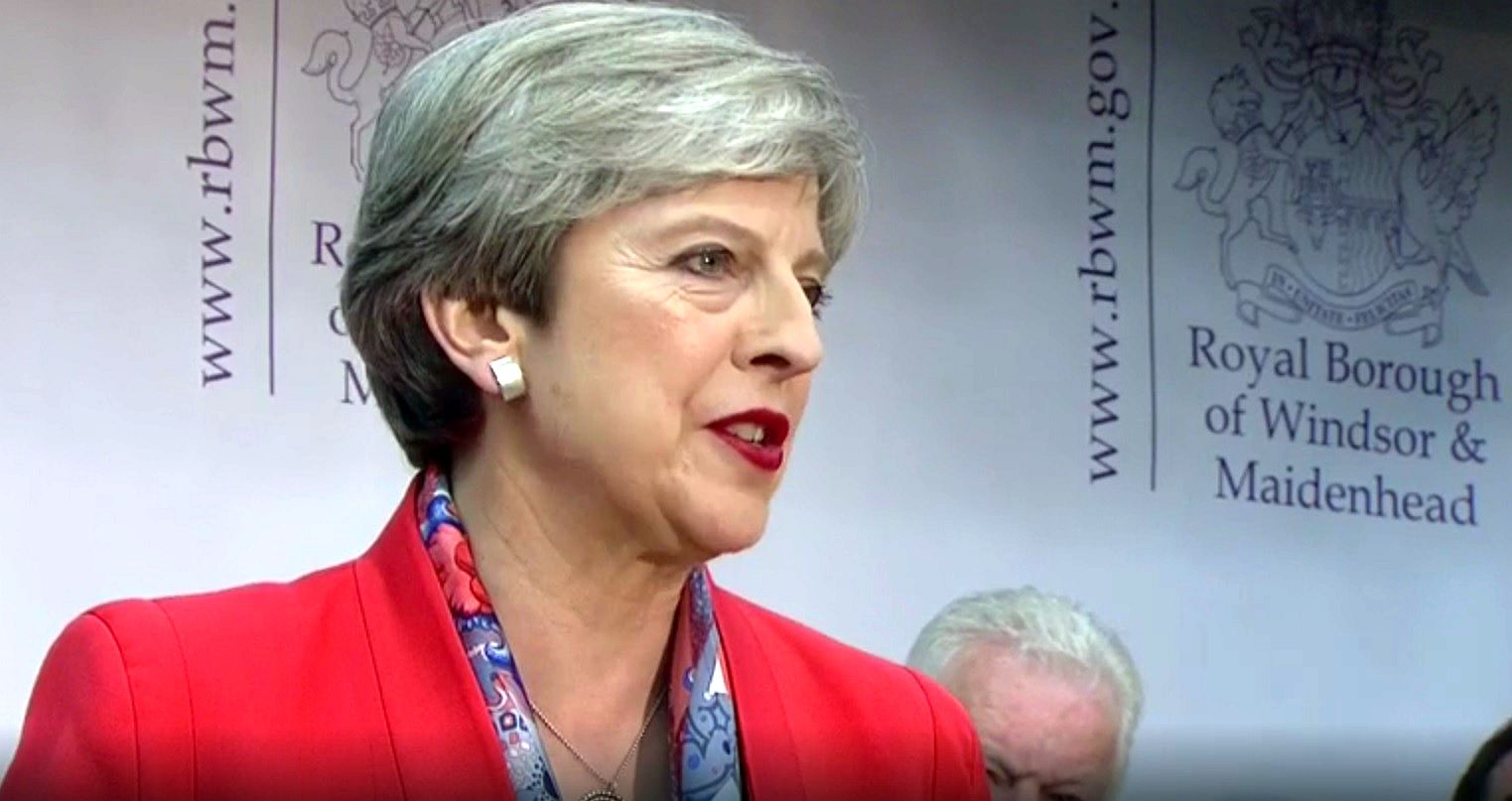
The Conservative Party have failed to win a majority of seats in the House of Commons, leaving a hung parliament.
For Prime Minister Theresa May, who demanded an election in order to win a mandate for Brexit negotiations, she now finds herself in a position she did not anticipate.
Theresa May will now seek to form a minority Government propped up by the Northern Irish Democratic Unionist Party (DUP). She has refused to resign.
She has now met with the Queen at 12:30pm today (9 June).
Labour leader Jeremy Corbyn, speaking after being re-elected in Islington North, said it was time for Theresa May to go and "make way" for a government that would be "truly representative of the people of this country".
The Shadow chancellor John McDonnell said Labour is “ready to form a government”, branding any Conservative-DUP arrangement a “coalition of chaos”.
The farming industry has started to react to the news, which has created worry due to the prospect of further uncertainty.
'Understand and value'
National Farmers' Union (NFU) said the union is committed to start working with whoever forms the new government to ensure all areas of Whitehall 'understand' and 'value' the importance of British food and farming.
NFU President Meurig Raymond said: “The NFU has a good relationship with all parties and, as ever, will work with whoever is in power to promote the interests of British farming.
“British farming underpins the country’s largest manufacturing sector and with farming arguably the sector most impacted by Brexit, NFU members need clarity and certainty as soon as possible over who will govern the country and how they plan to support profitable, productive and progressive agriculture and horticulture in the future.

“The NFU will be seeking early meetings with Ministers. It is important for our industry to have clarity and see certainty from a functioning administration as soon as possible.
“If the formal Brexit negotiations begin as planned on June 19 we will continue to push for the right post-Brexit trade deal, regulatory framework, a domestic agricultural policy suited to Britain and access to a competent, reliable workforce.
“The Government should be proud to promote British food at home and abroad and champion British food and farming through its public procurement policy.”
'Further uncertainty'
Rural organisation the CLA, which represents farmers and landowners, said the result adds 'further uncertainty to a period of significant upheaval'.
CLA President Ross Murray said: “The CLA’s top priority is the interests of the tens of thousands of farmers and other rural business owners that are getting on with their jobs today, while politicians manoeuvre and negotiate.
“We are ready to work with the new Government to influence the big decisions that will shape the rural economy and rural communities.
“Immediate attention will inevitably be on the implications of this result for securing a Brexit deal that will work in the long-term interests of agriculture and the wider economy. We remain confident that the right deal can be done.
“However, the priorities extend well beyond Brexit. Our leaders have responsibility to work together to provide rural businesses the economic stability and confidence to grow and create jobs, as well as build the homes and infrastructure that rural communities need.
“Achieving positive outcomes on these issues remains the CLA’s single minded focus and we will work with all sides in this parliament to achieve these things.
“Today is a time for calm heads and careful consideration of immediate questions, especially the timetable for Brexit negotiations. We are ready to work for our members whatever developments there are in coming days.”
'Volatile political environment'
The uncertainty created by the shock General Election result, particularly over the direction of Brexit negotiations, will be felt within the farming sector, the National Pig Association (NPA) has warned.
NPA chief executive Zoe Davies said: “In an already volatile political environment, this result only adds to the uncertainty and instability surrounding the Brexit negotiations - and that could be very damaging for the farming sector.
“The industry needs clarity on Brexit as some of the big decisions to be made, for example on access to the EU market, new trade deals and the future availability of labour, will have profound implications for our sector.
“We will continue to deliver strong leadership for the pig sector and, whoever is in power, we will carry on making the case for a fair deal for the British pig industry.”
'Dimension of uncertainty'
Commenting on the results of the general election, Dr Judith Bryans, chief executive of Dairy UK, said the British dairy industry must be recognised and given prominence in Brexit negotiations.
She said: “The general election result has added a further dimension of uncertainty to the situation, however, regardless of the political situation, it is imperative that the importance of dairy is recognised when negotiations begin.
“The UK dairy sector is already internationally competitive, but the UK industry has considerable potential for growth. Brexit will likely herald a range of challenges and opportunities in the UK and internationally.
“We are an industry that employs 80,000 people throughout the UK. We are an integral part of the nation’s food chain, providing safe, nutritious and value for money foods that are consumed in 98% of UK households.
“The industry is already resilient. As we approach Brexit, it has never been more important to recognise the significance of dairy and the sector stands ready to assist the Government in anyway during the negotiating process.”
'Lifeblood of rural economies'
Simon Gooderham, joint managing partner at rural firm Cheffins said the political landscape for the UK continues to be unclear.
He said: “It is essential that the government works together to support farming which is the lifeblood of rural economies.
“Farmers need security when it comes to farm support payments and trade deals with other countries. All of the main parties have pledged to secure trade deals across the EU and other countries but the exact detail of these needs to scrutinised.
“They need to ensure that these will be of a profitable nature for the UK’s farmers and not allow uncontrolled import of cheap food and produce which would then undercut our own industry.
“Proper engagement with key industry bodies such as the Country Landowners & Business Association and the National Farmers Union will be paramount to ensure that the government has a clear understanding of the issues affecting food and farming so that we secure the best possible Brexit deal for our industry.”
